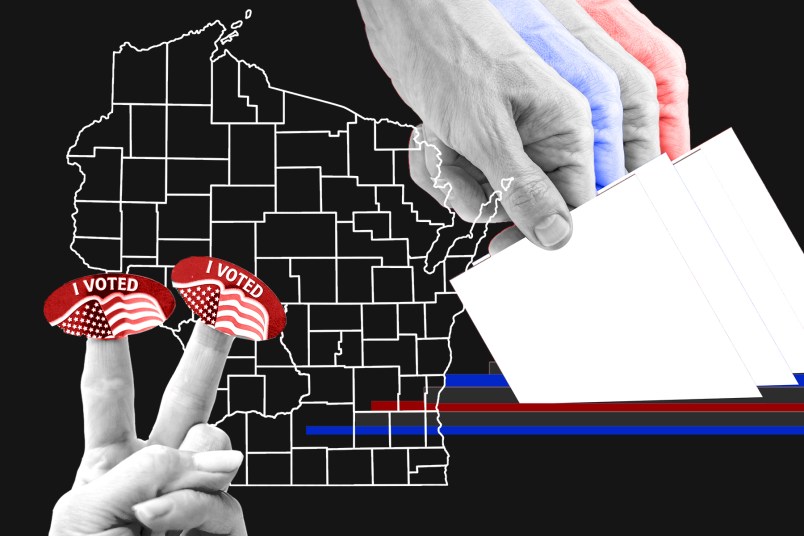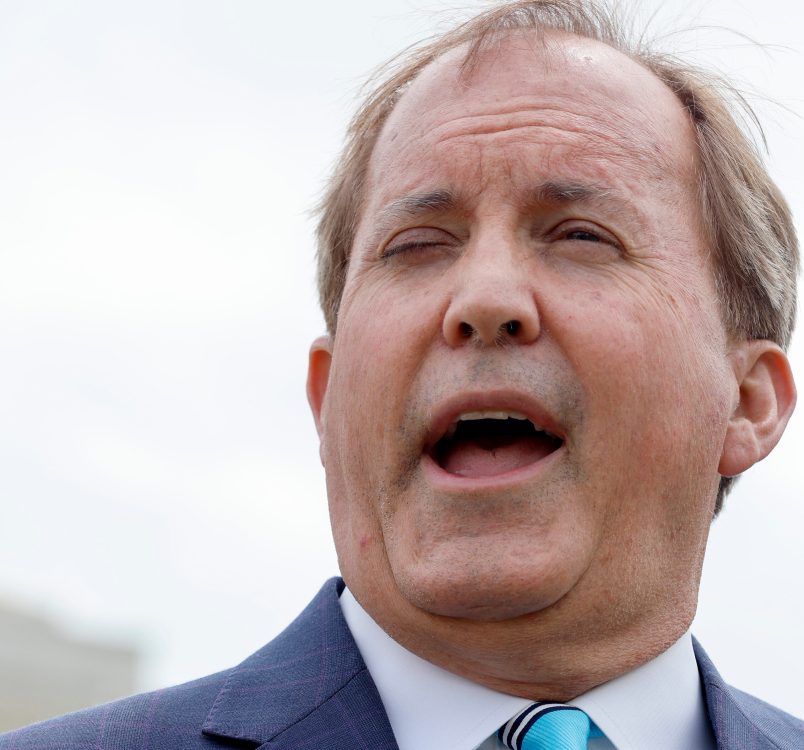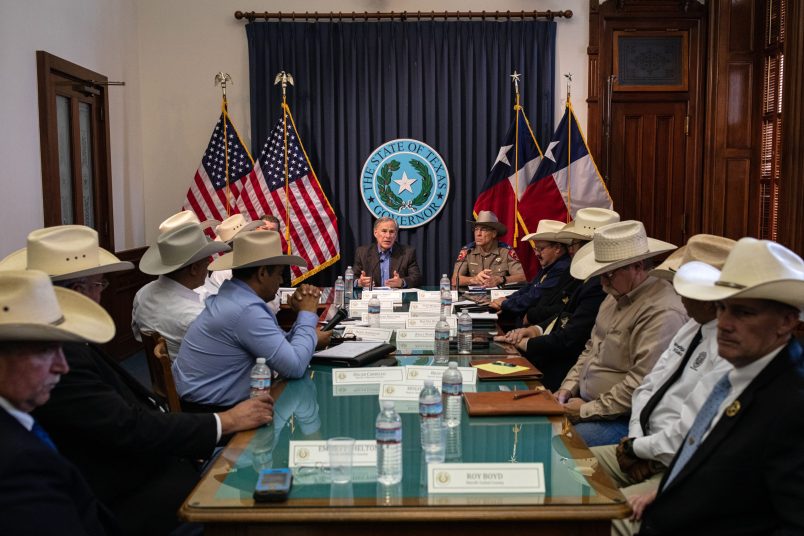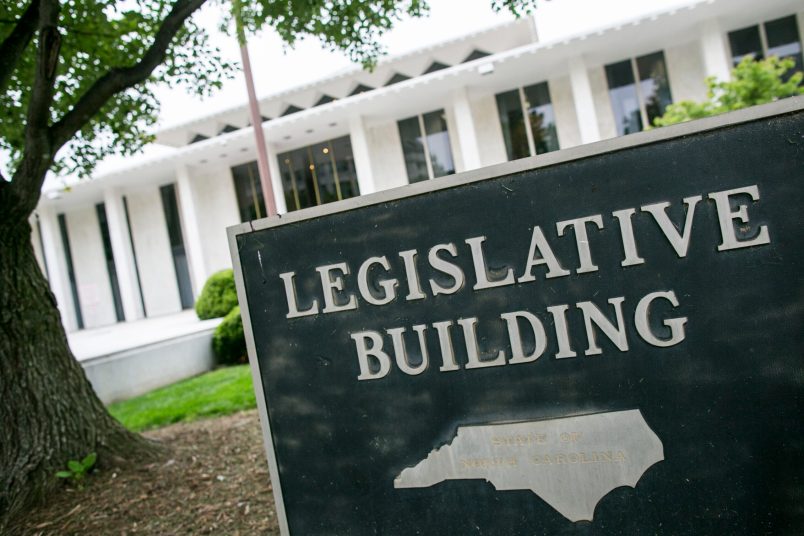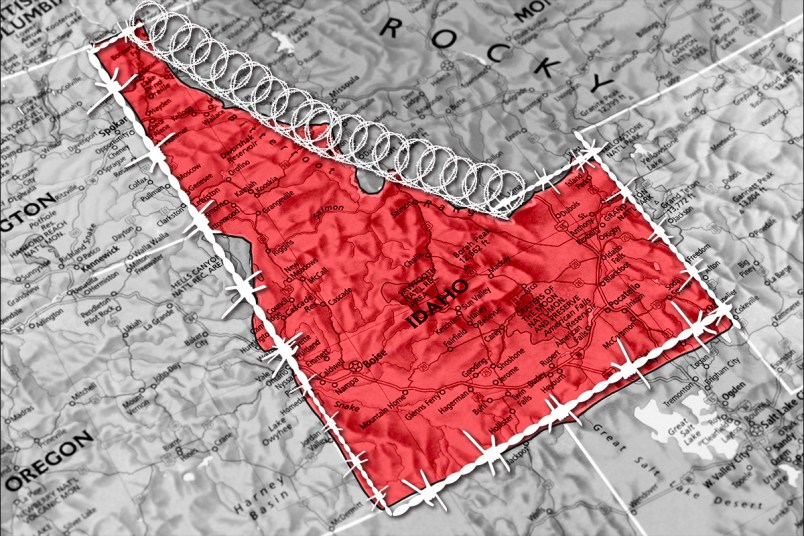At the end of February — the sleepy, dead days of winter when the 2022 midterms have shrunk in the rearview and 2024 still feels far off — Wisconsin will host a blockbuster primary for an open seat on the state Supreme Court, a race with significant national ramifications.
Justice Patience Roggensack, a conservative in her early 80s, is not seeking another term. That gives liberals the opportunity to retake the court majority for the first time since conservatives took over in 2008 — and with it, a far greater say in determining the state’s abortion access, its district lines and in settling any disputes stemming from the 2024 election.
The new court will hear cases that could alter the state’s trajectory.
The court is virtually certain to decide, at some point, whether a state abortion ban dating from 1849 will stand. The ban is severe: It makes providing an abortion a felony punishable by up to six years in prison and a $10,000 fine. There is an exception for a “therapeutic abortion” — an archaic, ambiguous term — when it is deemed “necessary, or is advised by 2 other physicians as necessary” to save the life of the woman.
The ban applies to all “unborn children,” an anti-abortion term in this case defined “from the time of conception until it is born alive.”
Wisconsin Attorney General Josh Kaul (D) filed a lawsuit against the ban just after the Supreme Court decided Dobbs, though it’s still languishing before the Dane County Circuit Court. The legal uncertainty has ended Wisconsin abortion care in the meantime, and left doctors mired in confusion and fear as they treat emergency cases.
A liberal majority on the court could also have the chance to force a redo of the state’s legislative and congressional maps, a hugely significant prospect as the Wisconsin legislature has been so aggressively gerrymandered that state Republicans came within spitting distance of winning supermajorities across both chambers in 2022. Democrats managed to stave off their opponents grabbing a veto-proof majority in the Assembly, though they remain locked into a small minority despite Wisconsin’s perennial status as a battleground state.
Milwaukee County Judge Janet Protasiewicz, one of the two liberals competing in the primary, is making unwinding some of the baked-in Republican dominance part of her campaign pitch.
“The maps are rigged — bottom line,” she said last month at a candidate forum. “Absolutely, positively rigged. They do not reflect the people in the state. They are rigged, period.”
She suggested that, if she won, the court would take up a challenge to maps that the state Supreme Court upheld last year, after intervention from the conservative-majority U.S. Supreme Court.
The state court would also handle any challenges stemming from the 2024 election, a threat that has loomed large ever since Donald Trump tried to strong-arm a handful of battleground states into reversing their election results in 2020. The Wisconsin Supreme Court rejected his lawsuit then, but only barely: conservative Justice Brian Hagedorn joined the liberals in a narrow 4-3 decision.
The candidates are not feigning political neutrality.
Unlike the justices on the U.S. Supreme Court, who decry accusations of partisanship even while they hold court at the Federalist Society, the candidates for the state bench are making no bones about where they stand on hot-button issues.
In addition to calling the maps “rigged,” Protasiewicz has said that a 2011 law signed by then-Gov. Scott Walker (R) ending collective bargaining rights for most public employees is “unconstitutional.” She’s running an ad where she says direct to camera: “I believe in a woman’s freedom to make her own decision on abortion.”
The other liberal in the race, Dane County Judge Everett Mitchell — who is vying to be the first Black justice elected to Wisconsin’s highest court — called the Republican maps “extreme” and “partisan.” He’s been outspoken about abortion rights, vowing in a statement after Dobbs was handed down that he “will always use my male privilege to stand with and to stand up for women’s reproductive rights.”
Dan Kelly, a former right-wing state Supreme Court justice who lost his seat in 2020 to now-Justice Jill Karofsky, once wrote that Democrats support abortion rights “to preserve sexual libertinism” and has heaped praise on the late Justice Antonin Scalia’s dissent in Obergefell v. Hodges. He participated in a Republican “election integrity” tour in Wisconsin last summer, has been endorsed by Trump and calls himself a “constitutional conservative.”
Right-wing Waukesha County Judge Jennifer Dorow has spoken approvingly of Dobbs and in 2016 called Lawrence v. Texas, the landmark Supreme Court case that banned anti-sodomy laws, “a prime example of judicial activism at its worst.” Her husband, Brian Dorow, served as deputy assistant secretary for state and local law enforcement in Trump’s Department of Homeland Security.
State Republicans injected the race with incentives for their voters to juice off-year turnout.
The odd timing of the election has both parties worried about turnout. Republicans used their manufactured dominance of the legislature to ensure that their voters have a few extra reasons to show up.
They put two constitutional amendments, and one advisory question for the legislature, on the ballot as well. The amendments would let judges take into consideration a person’s criminal history and “the probability the accused will not appear in court” while setting cash bail. The question, akin to a nonbinding resolution, would advise the legislature to require childless adults to search for work in order to qualify for welfare benefits.
Wisconsin Democrats condemned both, calling the advisory question in particular an attack on low-income people, as state law already requires childless adults to search for jobs in order to get unemployment insurance. State Republicans said they hope to expand that requirement for people to receive Medicaid — though the majority of Medicaid recipients are employed, and those that aren’t are mostly either serving as caregivers, living with an illness or disability or attending school.
Democrats tried to parry with their own advisory referendum, seeking to get a question on the ballot asking voters to weigh in on whether the state should repeal the 1849 abortion ban. Republicans, unsurprisingly, rejected the proposal.
The primary is technically “nonpartisan” — which could affect the general.
The top two vote getters on February 21 will advance to the April 4 general election. That creates the possibility that two of the candidates with the same political ideology will advance.
The race is shaping up to be historically expensive.
Already, outside groups and the candidates themselves are expected to spend $6 million — by the primary alone. The entire 2020 race for the highest state court rang in around $10 million, the current record. And many would-be spenders are keeping their powder dry until the general election.
Correction: Everett Mitchell is competing to be the first Black justice elected to the Wisconsin Supreme Court. Former Justice Louis Butler, who was appointed to the court, was the first Black justice to serve.


